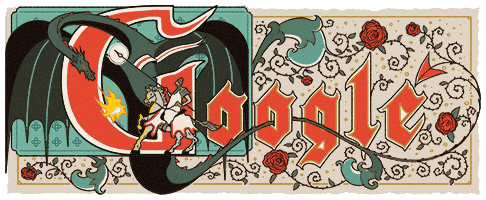Postmaster...
wrote:
"Cyprus before the Turkish invasion and the ethnic separation and cleansing, Turks and Greeks lived with each other many villages were mixed and some were just Turks and some just Greek. They villages my family originate from were mixed and My grandfather can remember Turkish familys would visit churches and prays to some of the Christian saints in return for a cure for an ill family member, when they wern't Christian."
What you are saying is significant because I'm convinced there could have also been Muslims and Christians sharing stories and legends actually over centuries and that's how these legends of Khizr and Saint George could have blended.
Likely some of the crusaders or pilgrims took stories of Saint George they heard in the east back to England.
I kinda doubt though you will find Saint George anywhere in the Qur'an except maybe as a book marker in it....
There was also a piece of literature well known in English literature called the "Faerie Queene" by Edmund Spenser which incorporates the story of Saint George...
Gentle Knight was pricking on the plaine,
Y cladd in mightie armes and siluer shielde,
Wherein old dints of deepe wounds did remaine,
The cruell markes of many' a bloudy fielde;
Yet armes till that time did he neuer wield:
His angry steede did chide his foming bitt,
As much disdayning to the curbe to yield:
Full iolly knight he seemd, and faire did sitt,
As one for knightly giusts and fierce encounters fitt.
But on his brest a bloudie Crosse he bore,
The deare remembrance of his dying Lord,
For whose sweete sake that glorious badge he wore,
And dead as liuing euer him ador'd:
Vpon his shield the like was also scor'd,
For soueraine hope, which in his helpe he had:
Right faithfull true he was in deede and word,
But of his cheere did seeme too solemne sad;
Yet nothing did he dread, but euer was ydrad.
Source:
http://darkwing.uoregon.edu/~rbear/queene1.html
